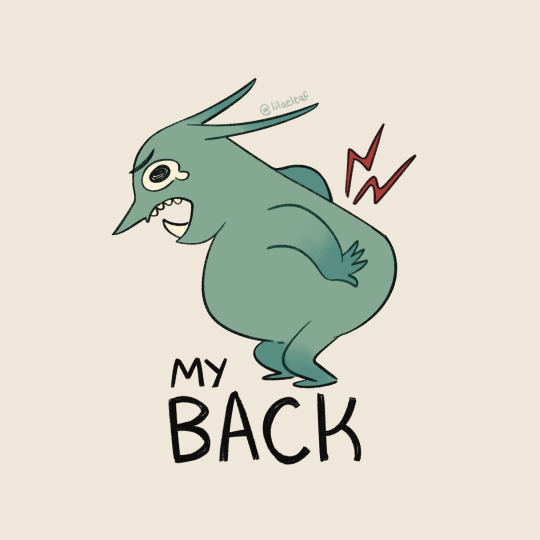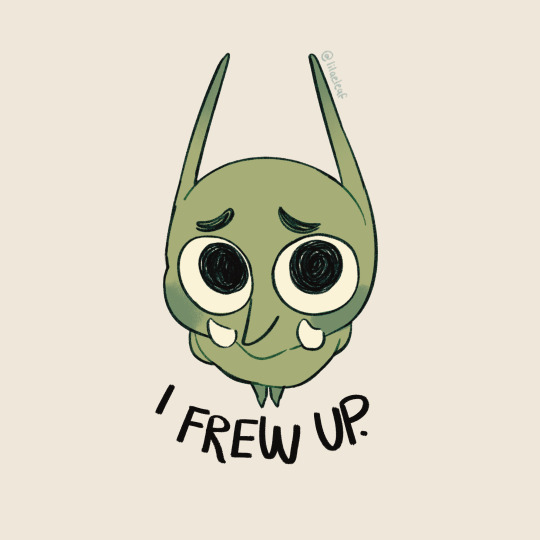Text
see the THING IS I don't feel like I ever worked hard enough to have "earned" the burnout, which is. probably how we got here.
124K notes
·
View notes
Text






Leonilda González (Uruguayan, 1923-2017) - Revolutionary Brides
7K notes
·
View notes
Text

Michael A Davenport, 3,090 Degrees Fahrenheit (Oil on canvas, 2025)
30in x 48in
80K notes
·
View notes
Text
maggie smith is right low-key......like you could make this place beautiful
4K notes
·
View notes
Text
It’s almost as if nobody wants to admit that they might not be prepared to do the work it takes to love somebody. And it can be laborious. To be intimate with someone who is flawed (which is the standard) requires us to expose our own flaws. We don’t talk about the heavy responsibility of that. We don’t talk about how we’re too lazy or too cowardly sometimes. We instead accuse love of being elusive. It isn’t. It is omnipresent. It asks us to be better people. And sometimes we flat out refuse.
154K notes
·
View notes
Text

Vasily Khudyakov (Russian b.1983), February Lace, Oil on canvas
7K notes
·
View notes
Text

Peter Brown (British b.1967), Christmas, Combe Park, 2019, Oil
17K notes
·
View notes
Text
127 notes
·
View notes
Text
keeping this in my blog to cheer me up on darker days 💜
Every pilot ever
2K notes
·
View notes
Photo


The Clatter
Lonesome entity made of discarded antlers of all shapes and sizes. Haunts rest stops, hunting blinds, and tourist traps in secluded woodsy areas. It’s named after the horrendous noises it makes when it moves, and its cry is like the wind blowing through bones.
22K notes
·
View notes
Text
as possible as yeast / as imminent as bread
—Lucille Clifton, "i am not done yet"

9 notes
·
View notes
Text
To say, “This is my uncle,” in Chinese, you have no choice but to encode more information about said uncle. The language requires that you denote the side the uncle is on, whether he’s related by marriage or birth and, if it’s your father’s brother, whether he’s older or younger.
“All of this information is obligatory. Chinese doesn’t let me ignore it,” says Chen. “In fact, if I want to speak correctly, Chinese forces me to constantly think about it.”
This got Chen wondering: Is there a connection between language and how we think and behave? In particular, Chen wanted to know: does our language affect our economic decisions?
Chen designed a study — which he describes in detail in this blog post — to look at how language might affect individual’s ability to save for the future. According to his results, it does — big time.
While “futured languages,” like English, distinguish between the past, present and future, “futureless languages,” like Chinese, use the same phrasing to describe the events of yesterday, today and tomorrow. Using vast inventories of data and meticulous analysis, Chen found that huge economic differences accompany this linguistic discrepancy. Futureless language speakers are 30 percent more likely to report having saved in any given year than futured language speakers. (This amounts to 25 percent more savings by retirement, if income is held constant.) Chen’s explanation: When we speak about the future as more distinct from the present, it feels more distant — and we’re less motivated to save money now in favor of monetary comfort years down the line.
But that’s only the beginning. There’s a wide field of research on the link between language and both psychology and behavior. Here, a few fascinating examples:
Navigation and Pormpuraawans In Pormpuraaw, an Australian Aboriginal community, you wouldn’t refer to an object as on your “left” or “right,” but rather as “northeast” or “southwest,” writes Stanford psychology professor Lera Boroditsky (and an expert in linguistic-cultural connections) in the Wall Street Journal. About a third of the world’s languages discuss space in these kinds of absolute terms rather than the relative ones we use in English, according to Boroditsky. “As a result of this constant linguistic training,” she writes, “speakers of such languages are remarkably good at staying oriented and keeping track of where they are, even in unfamiliar landscapes.” On a research trip to Australia, Boroditsky and her colleague found that Pormpuraawans, who speak Kuuk Thaayorre, not only knew instinctively in which direction they were facing, but also always arranged pictures in a temporal progression from east to west.
Blame and English Speakers In the same article, Boroditsky notes that in English, we’ll often say that someone broke a vase even if it was an accident, but Spanish and Japanese speakers tend to say that the vase broke itself. Boroditsky describes a study by her student Caitlin Fausey in which English speakers were much more likely to remember who accidentally popped balloons, broke eggs, or spilled drinks in a video than Spanish or Japanese speakers. (Guilt alert!) Not only that, but there’s a correlation between a focus on agents in English and our criminal-justice bent toward punishing transgressors rather than restituting victims, Boroditsky argues.
Color among Zuñi and Russian Speakers Our ability to distinguish between colors follows the terms in which we describe them, as Chen notes in the academic paper in which he presents his research (forthcoming in the American Economic Review; PDF here). A 1954 study found that Zuñi speakers, who don’t differentiate between orange and yellow, have trouble telling them apart. Russian speakers, on the other hand, have separate words for light blue (goluboy) and dark blue (siniy). According to a 2007 study, they’re better than English speakers at picking out blues close to the goluboy/siniy threshold.
Gender in Finnish and Hebrew In Hebrew, gender markers are all over the place, whereas Finnish doesn’t mark gender at all, Boroditsky writes in Scientific American (PDF). A study done in the 1980s found that, yup, thought follows suit: kids who spoke Hebrew knew their own genders a year earlier than those who grew up speaking Finnish. (Speakers of English, in which gender referents fall in the middle, were in between on that timeline, too.)
81K notes
·
View notes













